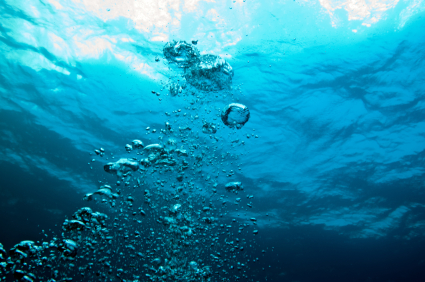Just about every practice central to homebirth midwifery has never been tested or has been tested and shown to be dangerous. Waterbirth is no exception. The American Academy of Pediatrics Committee on the Fetus and Newborn released a comprehensive report in 2005 that waterbirth is not safe for babies and the central conclusions were reaffirmed at a conference of the committee in 2011.
The report, Underwater Births, notes:
Throughout human existence, women have typically given birth to their offspring on land. Over the last 25 years, however, underwater birth has become more popular in certain parts of the world despite a paucity of data demonstrating that it is either beneficial or safe.1–22 Underwater birth occurs either intentionally or accidentally after water immersion for labor, a procedure promoted primarily as a means of decreasing maternal discomfort. A review of the available literature indicates that the risks of underwater birth to the newborn seem to outweigh the benefits, and caution is urged before widespread implementation.
After reviewing the existing scientific literature, the committee concludes:
The safety and efficacy of underwater birth for the newborn has not been established. There is no convincing evidence of benefit to the neonate but some concern for serious harm. Therefore, underwater birth should be considered an experimental procedure that should not be performed except within the context of an appropriately designed RCT after informed parental consent.
Homebirth midwives have ignored this report and continue to conduct what amounts to uncontrolled experimentation on newborns by recommending under water birth. I have written about deaths and injuries of babies at waterbirth from freshwater drowning, hyponatremia from ingesting large quantities of pool water and uncontrolled hemorrhage from snapped umbilical cords.
Now comes report of an infant who died following a home waterbirth into a pool containing her mother’s virally contaminated diarrhea. The paper is Case Report: Severe Disseminated Adenovirus Infection in a Neonate Following Water Birth Delivery published in this month’s issue of the Journal of Medical Virology.
A female infant was born at home by spontaneous vaginal delivery at 40 weeks and 4 days gestation via a planned water birth. The pregnancy was complicated by a maternal diarrheal illness with low-grade fevers for about 1 week prior to delivery with maternal defecation occurring into the water bath during labor. Following delivery, the infant appeared healthy until 4 days of age when she developed a rectal temperature of 388C. She was hospitalized and a sepsis work up was initiated. A chest radiograph showed findings consistent with viral pneumonia…
The patient was started on two antibiotics and one anti-viral medication to presumptively treat for the most common neonatal infections (group B strep and herpes simplex). She did not respond to the treatment and became progressively worse.
At 10 days of age, the patients breathing became labored requiring transfer to the neonatal intensive care unit (NICU). She was placed on high frequency oscillatory ventilation followed by venoarterial extracorporeal membrane oxygenation (ECMO) due to worsening chest radiograph, respiratory acidosis, and poor oxygenation…
Further testing for unusual organisms revealed adenovirus in the baby’s trachea and blood stream. Cidofovir was started but it was too late.
The infant developed a coagulopathy and became anuric on ECMO day 5 (17 days of age) and then developed worsening metabolic acidosis, poor perfusion, grossly bloody stools, and bloody endotracheal tube secretions. Her parents decided to withdraw medical support at this point, and she died shortly after being taken off ECMO (19 days of age).
Autopsy findings were consistent with adenovirus pneumonia.
The baby did not have to die.
In the present case, the neonate’s HAdV infection likely occurred by vertical transmission during the water birth since the mother had symptoms of gastroenteritis with defecation into
the water bath immediately prior to delivery (maternal laboratory testing was not performed). Delivery into water laden with HAdV may have increased the infant’s risk of pathogen contact with mucous membranes (eyes/nose), the gastrointestinal tract by swallowing, and the lungs by aspiration.
The baby could have been infected with adenovirus by vaginal delivery in the absence of waterbirth, but it could not have helped to be submerged into virally contaminated pool water.
There is nothing natural about waterbirth. Yes, water is natural and birth is natural, but the combination is not. Pretending that it is natural and therefore beneficial is the intellectual equivalent of pretending that since poisonous mushrooms are natural and eating is natural, eating poisonous mushrooms is natural and therefore beneficial.
No primates give birth in water, and waterbirth was first proposed for humans only 200 years ago. There is considerable evidence that being born underwater is dangerous for babies and there is no evidence that it is beneficial for babies in any way. This case report adds yet another death to the waterbirth literature.


